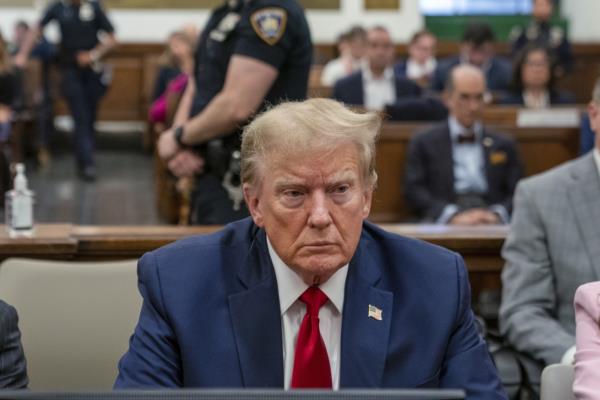
Former President Donald Trump recently gave a lengthy interview to conservative Hugh Hewitt, where he reiterated his controversial views on immigration. During the interview, Trump emphasized, for the fifth and sixth time, his belief that immigrants are 'poisoning the blood' of the United States and referred to them as terrorists. This is not the first instance of Trump making such statements, raising questions about his intentions and motivations.
Trump's remarks have drawn criticism due to the racial undertones and parallels they draw with past figures like Adolf Hitler. While denying any knowledge of Hitler using similar language, Trump's connection to the phrase has been widely debated. Some argue that the former president's repeated use of the term 'poisoning the blood' is a calculated dog whistle targeting his base, which includes white supremacists. Others believe Trump may not fully grasp the historical context of his words, given his admitted lack of reading and knowledge on the subject.
It has been suggested that Trump relies heavily on speechwriters and may not always be aware of the content they produce. However, comments made by former White House Chief of Staff General John Kelly imply that Trump demonstrates some familiarity with Hitler and his generals, although he may be lacking accurate details.
Trump's rhetoric has been a source of controversy throughout his political career. While some argue that his statements resonate with a portion of the population feeling disillusioned by the political establishment, others condemn his language as divisive and harmful. The broader concern lies in how these remarks contribute to inflaming racial tensions and promoting extremist viewpoints.
It is important to note that Trump's stance on immigration is not universally shared, and many have expressed support for more compassionate and inclusive policies. These views emphasize the recognition of immigrants' contributions to the nation and the benefits of diversity.
As the debate over immigration and its impacts continues, it is essential for leaders and the public to engage in constructive conversations that foster understanding and unity. Addressing the concerns of marginalized communities and working toward comprehensive, fair immigration reform are crucial steps in promoting a more inclusive and harmonious society. However, the challenge remains in finding common ground and reconciling differing perspectives on this complex issue.







